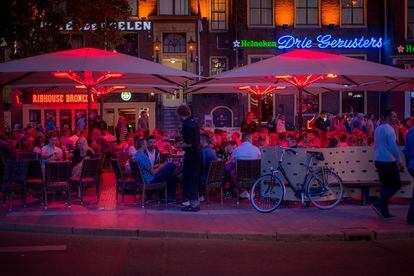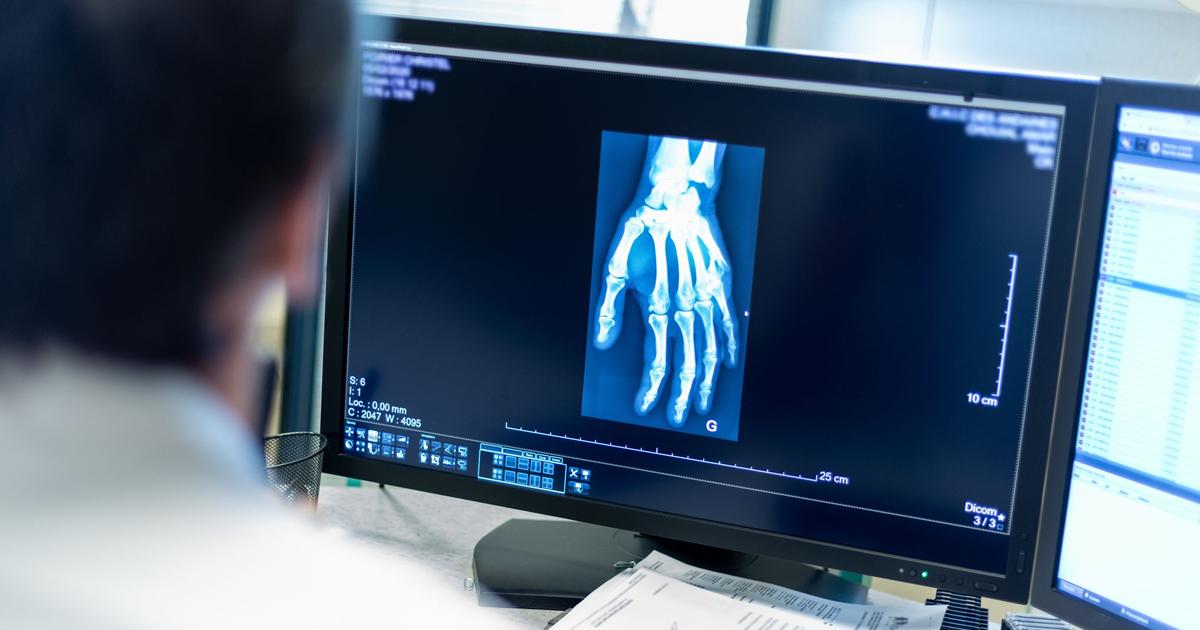In Spain, the favorable evolution of the virus has increased the logical rush to relax the restrictions.
Cases and income have been declining for weeks in all communities.
This is good news, although it should not be exaggerated either: in the pandemic we have learned that the virus has two essential states, either it goes down fast or it goes up fast, it rarely plans.
This week there has been a lot of talk about Denmark, which inaugurated normality and lifted its restrictions. But the data for Spain are not those of that country. Although we had more people vaccinated, and the incidence of detected cases is similar, in the last six weeks we have registered 20 times more hospitalized and 10 times more deaths per inhabitant, according to figures from Our World in Data.
The example of the United Kingdom is also a brake. The country celebrated its “freedom day” in July, the farewell to many restrictions, but it seems that it paid a price: during the summer the deaths have tripled and now the United Kingdom registers more deaths than the rest of rich Europe. On Tuesday Prime Minister Boris Johnson announced a "plan b" that will toughen measures if sick people continue to arrive at hospitals in the fall. That, being tied to a plan b, I think is something that in Spain would also be useful. As Johnson's scientific spokesperson emphasized, experience suggests that it is best to move "quickly and quickly" when the situation worsens.
Most of the experts I have spoken with this week are in favor of Spain moving towards normality, but they ask for caution in the process. The leader of the Computational Biology group at the UPC, Clara Prats, told me that with our level of vaccination, “we could sustain smooth growths without problems. However, we still have a certain risk if the perfect storm occurs —as at the end of June—, and we enter into a dynamic of very rapid growth ". Daniel López-Acuña, former director of Health Action in Crisis at the World Health Organization (WHO), gave me the example of Asturias, which currently has the lowest incidence of cases and admissions, "as a result of maintaining non-pharmacological measures and not de-escalate prematurely ”. He is in favor of advancing gradually and cautiously,"Without forgetting that the virus still circulates and infects."
Spain registers the lowest incidence of covid for more than a year with 91 cases per 100,000 inhabitants
Autumn favors the circulation of the virus: school returns, face-to-face work and indoor meetings increase.
Nobody makes predictions, but it is not ruled out that the virus will spread again - rather the opposite.
Vaccines stop infections, but partially: according to a study of UK data, they prevent perhaps two-thirds of symptomatic cases, but if we double the contacts, that advantage disappears.
Terrace of a bar in Madrid in July ICAPEM / Europa Press
Vaccines are the main reason for getting on the fast track to normality. We know that they protect us from serious disease very effectively, avoiding perhaps 95% of hospital admissions, even more so among relatively young and relatively healthy people. There is evidence that its effectiveness may decrease over time, as Miguel Hernán, an epidemiologist at Harvard, reminded me, but that can be taken into account: “Any step towards normality must consider the possibility of reinforcing the vaccination campaign to administer a third dose ”. However, it is difficult to predict the exact benefit of having 75% or 80% of the population vaccinated, because Spain is the laboratory. We are one of the first countries with these figures, and it will be our experience, together with that of Portugal, Denmark or Iceland, which will enlighten others.
The other great argument for relaxing restrictions is the very value of normal life.
The best example is schools, which when they do not work, cause obvious harm to their students.
My conclusion about this puzzle is an old recipe: you have to face the virus with one foot on the accelerator and the other on the brake.
We are going to lift restrictions because the evolution is positive, but we must be prepared to change course if the situation changes.
If I am skeptical of the success of that strategy, which I am, it is because rectification has proven difficult in the past and the brakes were applied late.













/cloudfront-eu-central-1.images.arcpublishing.com/prisa/Z45E6KV7VJGUXAKJWH7VA4NJSE.jpg)

